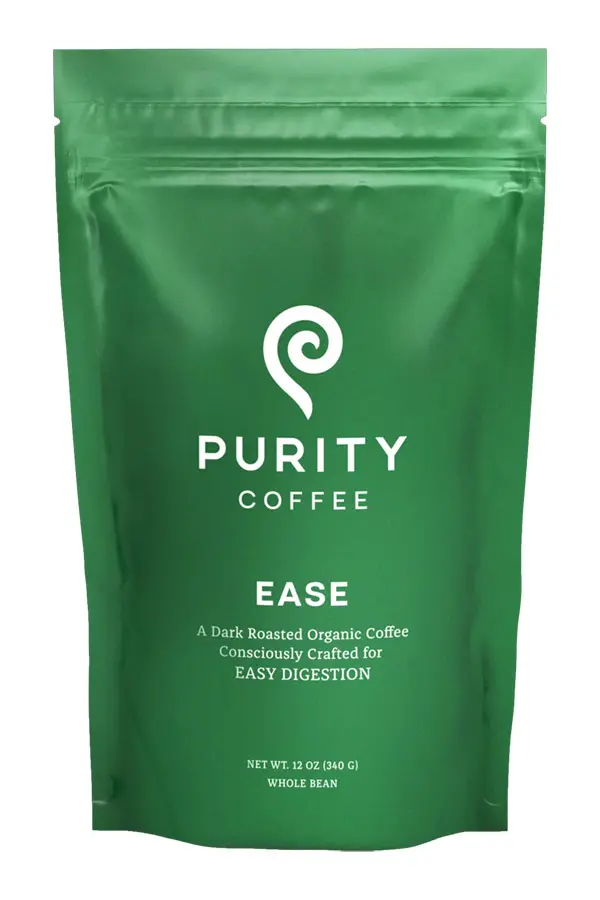IBS or irritable bowel syndrome is a common digestive disorder that affects millions of people worldwide. It is characterized by recurring episodes of abdominal pain, bloating, and changes in bowel habits. While there is no cure for IBS, lifestyle modifications such as dietary changes and stress management can help manage the symptoms.
What is IBS?
IBS is a chronic condition that affects the large intestine and causes a range of symptoms. The exact cause of IBS is unknown, but it is believed to be related to issues with the muscles and nerves that control the bowel. IBS can cause a variety of symptoms, including:
● Abdominal pain and cramping
● Bloating and gas
● Diarrhea or constipation● Mucus in the stool● Urgency to have a bowel movement
While the symptoms of IBS can be uncomfortable and distressing, they do not cause any permanent damage to the digestive tract.
How does coffee affect IBS?
Coffee is a popular beverage that contains caffeine, a natural stimulant that can affect the digestive system. Some people with IBS find that coffee exacerbates their symptoms, while others are able to tolerate it without issue. The effects of coffee on IBS can vary depending on several factors, including:
● Serving size: Larger serving sizes of coffee can lead to increased symptoms in some people with IBS.
● Roasting method: Darker roasted coffee beans may be more irritating to the gut than lighter roasted beans.
● Individual tolerance: Each person’s digestive system is unique, so some people may be able to tolerate coffee better than others.
Overall, the effects of coffee on IBS are complex and can vary from person to person. It is recommended that people with IBS who are sensitive to coffee should limit their intake or avoid it altogether.

Low Acid Coffee
What is low acid coffee?
For people with digestive issues like IBS, regular coffee can aggravate the symptoms due to its high acid content. Low acid coffee is an alternative option that is less acidic and may be easier on the stomach. This type of coffee is made by using a special roasting process that reduces the acidity levels.
Benefits of drinking low acid coffee for IBS
One of the main benefits of drinking low acid coffee for people with IBS is that it may help reduce the symptoms. Since low acid coffee has less acidity, it is less likely to cause heartburn, stomach pain, and nausea. Additionally, low acid coffee has a smoother taste, which can be appealing for those who find regular coffee too bitter or strong.
Moreover, low acid coffee can also provide the same benefits as regular coffee, such as improving mental alertness and reducing fatigue. It can be a good source of antioxidants that help protect against cell damage and reduce the risk of chronic diseases.
So, low acid coffee is a great alternative for people with IBS who love coffee but experience discomfort after drinking regular coffee. While this type of coffee may be more expensive than regular coffee, the benefits of reducing symptoms and enjoying a smoother flavor may outweigh the cost for those with sensitive digestive systems.

Decaf Coffee
Decaf coffee and IBS
For people with IBS, regular coffee can be a trigger for symptoms, and it is recommended that they try alternatives such as low acid or decaf coffee. Decaf coffee is a great option for those who want the taste of coffee without the presence of caffeine, which can irritate the digestive system. Decaf coffee has lower levels of acidity than regular coffee, making it a good option for individuals with sensitive stomachs.
Different types of decaf coffee
Decaf coffee is available in different variations, including Swiss water processed, solvent-based, and carbon dioxide processed. Swiss water processed decaf coffee removes caffeine without the use of chemicals, while solvent-based decaf coffee uses chemicals to extract caffeine. Carbon dioxide processed decaf coffee is environmentally friendly, using natural gases to extract caffeine.
Swiss water processed decaf coffee is the preferred method for people with IBS as it is free from chemical solvents and is less likely to contain trace amounts of caffeine. However, it is important to note that decaf coffee can still contain small amounts of caffeine, which may affect the symptoms of IBS in sensitive individuals.
In summary, decaf coffee can be a good alternative for people with IBS who want to enjoy the taste of coffee without the adverse effects of caffeine and high acidity levels. Swiss water processed decaf coffee is the preferred option as it avoids the use of chemicals. However, it is always important to consult with a healthcare professional before making any significant changes to your diet.

Cold Brew Coffee
What is cold brew coffee?
Cold brew coffee is a type of coffee that is made by steeping coffee grounds in cold water for a long period, typically 12-24 hours. Unlike traditional brewing methods that require hot water, cold brew coffee is made with cold water, resulting in a smooth and less acidic taste. The process of cold brewing coffee extracts fewer oils and acids from the coffee grounds, resulting in a less bitter taste and smoother drink.
How it helps with IBS
Cold brew coffee can be a great alternative for individuals with IBS, as it has a lower acidity level compared to regularly brewed coffee. This can help individuals with IBS avoid triggering symptoms such as reflux, nausea, and abdominal pain. The smoother taste of cold brew coffee may also be more enjoyable for those who are sensitive to bitter or acidic tastes.
In addition to being easier on the digestive system, cold brew coffee has been shown to have higher levels of antioxidants and less caffeine compared to hot brewed coffee. This may offer additional health benefits for individuals with IBS who are sensitive to caffeine or who may have other health concerns.
It is important to note that although cold brew coffee may be a better option for individuals with IBS, it is still a caffeinated drink and may trigger symptoms in some individuals. Additionally, cold brew coffee should be consumed in moderation as excessive consumption can lead to caffeine sensitivity and other potential health concerns. As always, it is important to consult with a healthcare professional before making any significant changes to your diet.

Bulletproof Coffee
What is bulletproof coffee?
Bulletproof coffee is a type of coffee that is blended with butter and coconut oil. The concept was popularized by Dave Asprey, the founder of the Bulletproof Diet. The idea behind bulletproof coffee is that the high-quality fats from the butter and coconut oil help to sustain energy levels and keep individuals feeling full throughout the day. To make bulletproof coffee, freshly brewed coffee is blended with grass-fed butter and MCT oil or coconut oil.
Why it may be beneficial for IBS
For individuals with IBS, bulletproof coffee may be a beneficial option as it is low in acid and contains healthy fats that are easy to digest. The high-quality fats in bulletproof coffee may also help to improve brain function and provide sustained energy throughout the day. In addition, the combination of caffeine and healthy fats in bulletproof coffee may help to improve mental clarity and reduce the symptoms of brain fog that are often associated with IBS.
When compared to regular coffee, bulletproof coffee has a lower acidity level, which may make it easier on the digestive system for individuals with IBS. However, it is important to note that because bulletproof coffee is high in fat, it may not be suitable for everyone, especially for those who have trouble digesting fat. It is also important to consume bulletproof coffee in moderation as excessive consumption may lead to weight gain and other potential health concerns.
So, bulletproof coffee may be a beneficial option for individuals with IBS who are looking for a low acid and easy to digest coffee alternative. However, it is important to listen to your body and consult with a healthcare professional before making any significant changes to your diet.

Organic Coffee
Benefits of organic coffee for IBS
Organic coffee is a great option for individuals with IBS because it is free from harmful pesticides and chemicals. The lack of these harmful additives may reduce the risk of intestinal inflammation and nausea that can worsen IBS symptoms. Organic coffee is also rich in antioxidants, which are known to reduce inflammation throughout the body.
Another benefit of organic coffee for individuals with IBS is that it is less likely to cause digestive irritations such as acid reflux and indigestion. This is because it is roasted at a lower temperature, which preserves the natural oils and flavor of the coffee beans. As a result, organic coffee is less acidic and easier on the digestive system.
Different types of organic coffee
There are various types of organic coffee available in the market such as:
- Fair Trade Organic Coffee: This type of organic coffee is sourced from cooperatives that offer fair wages and working conditions to farmers.
- Shade Grown Organic Coffee: Shade-grown coffee is grown under a canopy of trees, which helps to preserve the natural habitat of birds and wildlife. It also allows the coffee beans to mature more slowly, resulting in a richer, more complex flavor.
- Single-Origin Organic Coffee: This type of organic coffee is sourced from a single farm or region, which allows for a unique flavor profile that reflects the local climate, soil, and growing conditions.
Overall, organic coffee is a great option for individuals with IBS as it is free from harmful chemicals and additives and is less likely to cause digestive irritations. It is important to note that while coffee may have some health benefits, excessive caffeine intake can exacerbate IBS symptoms. As always, it is best to consult with a healthcare professional before making any significant changes to your diet.
Coffee Alternatives
Benefits of coffee alternatives for IBS
Individuals with IBS often experience digestive discomfort after consuming coffee due to its high caffeine content and acidity. However, there are various coffee alternatives that may provide similar benefits without exacerbating IBS symptoms. These alternatives are typically lower in caffeine and less acidic, making them easier on the digestive system.
Other beverages to consider for IBS
Some alternatives to coffee that individuals with IBS may consider include:
- Decaffeinated coffee: Decaffeinated coffee still contains traces of caffeine, but significantly less than regular coffee. It may be a good alternative for those who enjoy the taste of coffee but cannot tolerate the caffeine.
- Smoothies: Smoothies made with low FODMAP fruits and vegetables, such as spinach, banana, and strawberries, can be a great source of nutrients and help soothe the digestive system.
- Kombucha: Kombucha is a fermented tea that contains probiotics, which can help promote gut health and reduce inflammation.
- Almond milk latte: A latte made with almond milk instead of cow’s milk can be a lower acid and lactose-free alternative to traditional coffee.
Tea, herbal tea, and other options
In addition to the alternatives mentioned above, tea and herbal tea can be a great alternative for those who want to still enjoy a warm and comforting beverage without the digestive upset. Some teas that may be beneficial for individuals with IBS include:
- Peppermint tea: Peppermint is known to soothe the digestive tract and reduce bloating.
- Ginger tea: Ginger has been shown to reduce nausea and inflammation in the gut.
- Chamomile tea: Chamomile has a calming effect on the body and may help reduce stress and anxiety, which can contribute to IBS symptoms.
So, there are various coffee alternatives that individuals with IBS can consider to help reduce digestive discomfort. It is important to consult with a healthcare professional to determine the best options for your individual needs.

Tips for Choosing the Best Coffee for IBS
Factors to consider when choosing coffee
Individuals with Irritable Bowel Syndrome (IBS) are concerned about their coffee intake because of its high caffeine content and acidity. However, there are factors to consider when choosing coffee that can reduce IBS symptoms. Here are some things to keep in mind:
- Roasting level: Lighter roasts tend to be less acidic and easier on the digestive system than darker roasts.
- Origin: Coffees from different regions can have varying levels of acidity. Generally, coffee from South and Central America tends to be less acidic than coffee from Africa or Asia.
- Blends: Some coffee blends may be easier to tolerate for those with IBS. For instance, coffee blends with a higher percentage of Arabica beans and lower percentage of Robusta beans tend to be less acidic.
- Caffeine content: Regular coffee has a high caffeine content that can aggravate IBS symptoms. Decaffeinated coffee may be a better option for those who cannot tolerate the caffeine.
Where to purchase IBS-friendly coffee
Individuals with IBS can purchase coffee that is specifically designed for their needs. Some specialty coffee roasters produce low-acid coffee that can reduce digestive discomfort. Here are some places where you can purchase IBS-friendly coffee:
- Puroast: Puroast coffee is a low-acid coffee that claims to be seven times less acidic than traditional coffee.
- Hevla Coffee: Hevla coffee is a low-acid coffee that uses a patented roasting process to reduce acidity levels.
- Moments Coffee: Moments coffee is a low-acid coffee that is specifically designed for those with digestive issues like IBS and acid reflux.
So, individuals with IBS can still enjoy coffee by choosing the right type and brand. Considering factors like roasting level, origin, and caffeine content can reduce IBS symptoms. Additionally, purchasing low-acid coffee from specialty roasters can also be helpful. Consulting with a healthcare professional can provide more customized advice on coffee intake for those with IBS.
Tips for Choosing the Best Coffee for IBS
Individuals with Irritable Bowel Syndrome (IBS) may be worried about their coffee intake due to its high caffeine content and acidity. However, choosing the right type and brand of coffee can reduce IBS symptoms. Some factors that can be considered while making the right choice include the roasting level, origin, blends, and caffeine content.
Lighter roasts are generally less acidic and may be easier for individuals with IBS to digest as compared to darker roasts. Coffees from South and Central America tend to be less acidic than those from Africa or Asia. Coffee blends with a higher percentage of Arabica beans and a lower percentage of Robusta beans may be easier for individuals with IBS to tolerate. People with IBS can also opt for decaffeinated coffee as regular coffee’s high caffeine content can aggravate IBS symptoms.
Individuals with IBS can purchase IBS-friendly coffee that is specifically designed for their needs. Some specialty coffee roasters produce low-acid coffee that can reduce digestive discomfort. Examples of low-acid coffee that you can purchase include Puroast, Hevla Coffee, and Moments Coffee.
Summary of the best coffee options for IBS
When it comes to choosing the right coffee for IBS, some options to consider include:
- Lighter roasts
- Coffees from South and Central America
- Coffee blends with a higher percentage of Arabica beans and a lower percentage of Robusta beans
- Decaffeinated coffee
- Low-acid coffee from specialty coffee roasters like Puroast, Hevla Coffee, and Moments Coffee
Final thoughts on managing IBS symptoms with coffee
While coffee may seem like problematic for individuals with IBS, choosing the right type and brand can reduce IBS symptoms. Factors like roasting level, origin, blends, and caffeine content should be considered. Purchasing low-acid coffee from specialty roasters can also be helpful. However, it is essential to consult with a healthcare professional for customized advice on coffee intake for those with IBS.
